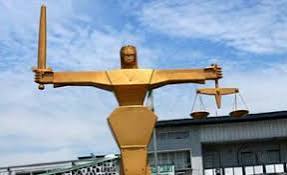By Mark Lenu
Mixed reactions have continued to trail the once withheld and now released statutory allocation meant for Rivers State. The Central Bank of Nigeria had earlier announced its action not to release the monthly federal allocation to the state government, citing a court injunction as its reason.
The decision of the apex bank came after a Federal High Court in Abuja barred the Central Bank of Nigeria from disbursing further monthly allocation to the Rivers State Government, citing alleged constitutional violations by Governor Siminalayi Fubara.
In her ruling, Justice Joyce Abdulmalik found that Governor Fubara’s presentation of the 2024 budget to a four-member House of Assembly breached constitutional protocol.
Justice Abdulmalik highlighted that since January, Rivers State had received and spent allocations based on an “illegitimate” budget, describing it as a “constitutional aberration.” The court further restricted the CBN, the Accountant General of the Federation, and the state’s accounts at Zenith Bank and Access Bank from releasing any funds to Fubara.
The decision of the CBN was greeted with outrage, especially from Rivers residents who viewed the court order as a political attempt to witch-hunt the administration of Governor Fubara. But in a U-turn, the federal government through the president had directed the CBN not to withhold the statutory allocation. meant for the state.
The action of the president has met with several commendations including the Pan Niger Delta Forum (PANDEF) which described it as an act of statesmanship. While the president may have acted in the interest of national unity, some still believe the presidential directive negates the rule of law.
CBN firstly said its decision to withhold the allocation meant for Rivers State was in compliance with the order of the court, but did not wait for a reversal from a superior court before rescinding its decision. It therefore means that the CBN views the presidential directives to be superior to court orders as demonstrated in the Rivers State allocation dispute.
For the balance of power among the three arms of government, the president was expected to have influenced an appellate court to upturn the decision of the trial court before directing the CBN to release the allocation meant for the state.




